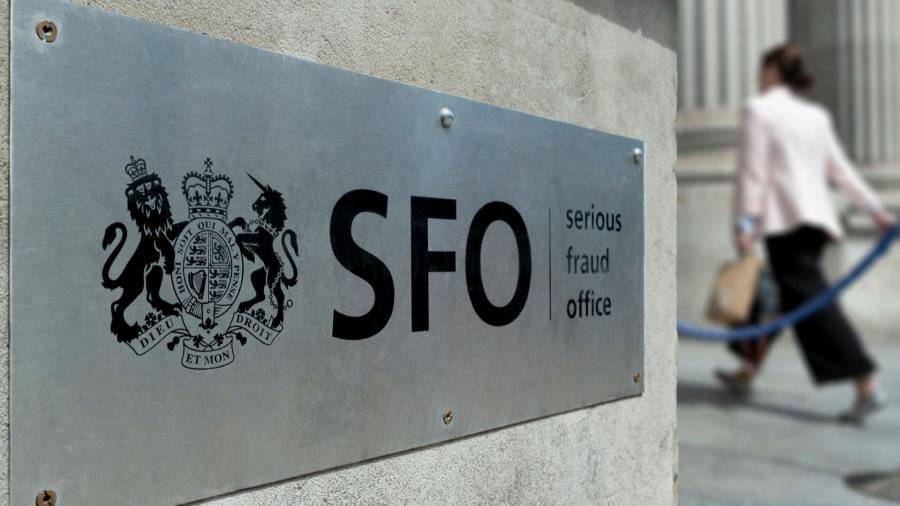[ad_1]
The Serious Fraud Office’s ability to compel evidence from overseas was dealt a blow in the Supreme Court on Friday in a ruling that underlines the limits of its powers to tackle the increasing cross-border nature of financial crime.Â
The anti-graft agency was defeated in the UK’s highest court by US engineering services company KBR, whose British subsidiary is under investigation by the SFO.
Five Supreme Court justices sided unanimously with the company, which claimed the agency could not extend its so-called “section 2†powers to demand KBR provide evidence held by its US parent. The judgment overturned an earlier High Court ruling that found in favour of the agency.
Lawyers said it underlined how the SFO’s powers, granted to it in the 1987 Criminal Justice Act, had failed to keep pace with the globalised nature of fraud and corruption.
“This is a serious blow to the SFO. Without being able to use its [Section 2 powers] overseas, the agency finds itself in a peculiar position of having the power to prosecute overseas companies/individuals, but with limited powers to investigate them,†said Kyle Phillips, a criminal lawyer at Fieldfisher, adding: “When the [Criminal Justice] Act was created in the 80s the world was a smaller place.â€
The High Court had sided with the agency in 2018 after KBR brought a judicial review against the SFO’s attempts to demand evidence from its US parent. That ruling allowed the agency to compel the production of documents held by its US parent, as long as there was a “sufficient connection†between it and the UK.
However, on Friday the Supreme Court ruled that UK legislation was “generally not intended to have extraterritorial effectâ€. It added the SFO should have relied instead on the system of mutual legal assistance, which governs co-operation between states in criminal probes.
Handing down the judgment, Lord Justice Lloyd-Jones said the court also did not recognise the “sufficient connection†test outlined by the High Court, which he said would involve “rewriting the legislation.â€
Lawyers said the legislation would need updating if the SFO was looking for similar cross-border powers to enforcement agencies such as the US Department of Justice.
“The 1987 statute which created the SFO’s powers may be ill-suited to modern age, when the SFO frequently investigates multinationals holding relevant documents overseas . . . It will now be for parliament to decide whether the statutes, which date from over 30 years ago, can or should be updated,â€Â said Andrew Smith, a partner at law firm Corker Binning.
Former SFO general counsel Alun Milford, who was in post when the agency made the section 2 notice, said he had believed the connections between the UK and US arms of KBR were sufficient to warrant it.
But Milford, who is now a partner at Kingsley Napley, said there were good reasons for the curbs on exercising powers beyond UK borders. “It’s the cornerstone of international law that you don’t exercise powers in someone else’s country without their permission . . . mutual legal assistance is the default route and it can be slow but . . . it is a system built by nation states that says they will not conduct investigation in each other frontiers, it’s an expression of state sovereignty.â€
Milford added that such powers were used sparingly by foreign agencies like the DOJ for that reason.
Barry Vitou, a partner at Greenberg Traurig, who represented KBR, said: “For the UK to impose an obligation on a citizen of another country to do something in their own country and make failure to comply a criminal offence in the UK would be a particularly startling breach of international law.â€
In a statement, the SFO said: “Section 2 powers are fundamental to our ability to conduct our investigations, which often involve international companies with complex corporate structures,†adding: We welcome the Supreme Court’s clarification of the extent of the SFO’s powers in this matter.â€
[ad_2]
Source link





